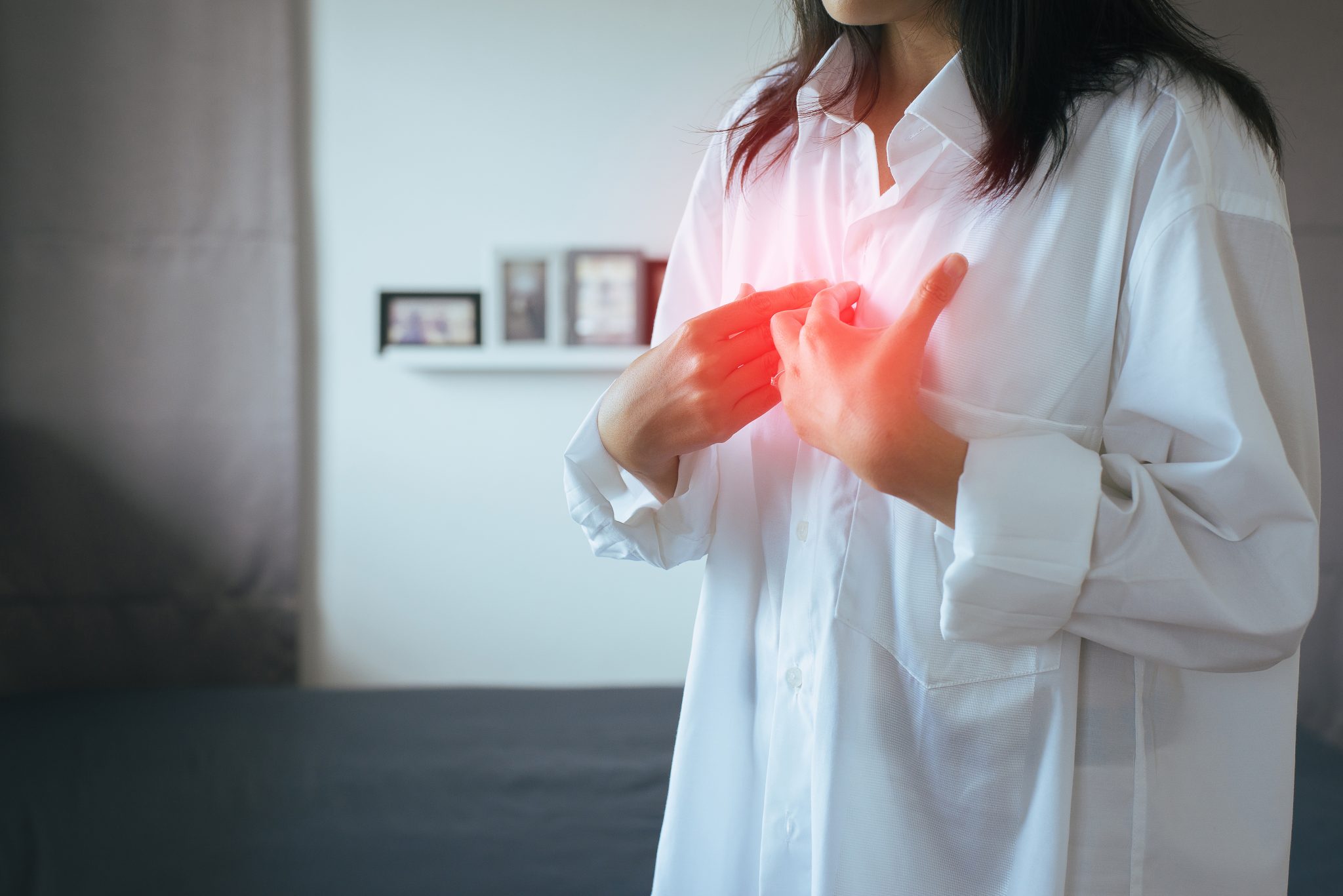GERD is a digestive disorder that left untreated can lead to chronic inflammation, ulcers, scarring and abnormal tissue growth. Lindy Andrews shares 10 signs you could have it.
Despite years of doctor’s and medications, naturopaths and assorted therapies, it took over a decade to determine the problem that I still live with the symptoms of today. The eventual diagnosis was – in simple terms because that’s all I could understand – a stretched oesophagus due to carrying such a large baby.
This problem was compounded over the following years as scar tissue grew over my oesophagus that led to shrinking the passage, meaning that I began to easily choke on food and frequently had to throw it up so that I could breathe. I even had to take myself off to hospital after one such episode at a restaurant. Nothing like a trip to the ED as a romantic evening killer after taking your first bite.
These days though I’m managing it with far less of the over-the-counter Proton Pump Inhibitor (PPI’s) such as Nexium with more natural remedies to reduce the symptoms.
While reflux may sound benign, Gastroesophageal Reflux Disease is anything but, with potential to develop into something much more sinister.
What is GERD?
Gastroesophageal Reflux Disease (reflux) is a digestive disorder that is the result of stomach acid flowing back into the oesophagus, the tube connecting your mouth with your stomach, inflaming the oesophagus lining.
Acid reflux is not uncommon. Many people experience it from time-to-time, usually due to food that does not agree with them. But Gastroesophageal reflux disease (GERD) is a more frequent visitor, with sufferers experiencing moderate to severe reflux once a week or more.
How Is GERD Treated?
Some people with very mild symptoms find that simple diet and lifestyle changes, antacids and other over the counter medications are enough to reduce their symptoms. However, those with more severe cases generally don’t find relief with these types of treatment.
These cases may require prescription medications or even surgery to fix the problem.
Once you’ve been diagnosed, your doctor will probably monitor your symptoms for a while, starting with the least invasive treatments first, and work up to more drastic measures if nothing else is proving effective in managing symptoms.
Left untreated, GERD not only makes life miserable, but can also trigger serious long term health problems, such as chronic inflammation, ulcers, scarring and abnormal tissue growth, due to the constant presence of stomach acid in your oesophagus. As a result, your oesophagus can become narrower and tighter. This condition, known as oesophageal stricture, often makes it difficult or painful to swallow, and increases the risk of choking. In extreme cases, it has even been linked to oesophageal cancer.
What Causes GERD?
There are many different risk factors that can play a role in this condition. Some of these include;
- Obesity or being very overweight
- Some types of hernia
- Scleroderma and other connective tissue disorders
- Pregnancy
- Smoking
- Frequent consumption of alcohol or coffee
- Poor eating habits, or overindulging in certain kinds of foods
- Certain types of medications, including aspirin
The 10 Signs You Might Have GERD
Now that you know more about what gastroesophageal reflux disease is, how it’s treated and what might be causing or aggravating it, you need to know if you have it. Your doctor is the only person who can give you a definitive diagnosis, which they might do with a scope to take pictures of the area or by a variety of other means.
But there are a few telltale signs that you might have this condition, they include:
1. Heartburn
Yes, we all get it from time to time, but if you have severe bouts frequently, it might be a sign that you have gastroesophageal reflux disease. Some heartburn can even feel like you’re having a heart attack. If yours is that bad, and you have it frequently, make an appointment to see your doctor.
2. Dyspepsia
This is a feeling of bloating and “fullness” that isn’t directly related to eating too much. You might feel this even when it’s been a while since you ate.
3. Regurgitation
Yes, that feeling when you “throw up a little in your mouth.” It’s a real thing, it’s unpleasant, and it’s a sign of GERD.
4. Excessive spit
Yes, people with GERD often produce a lot more saliva than they need.
5. Dysphagia
Which is the clinical term for having difficulty swallowing.
6. Bad breath
Of course, when food and stomach contents aren’t staying where they’re supposed to, you’re going to have some odd smells escaping too. Which is why halitosis is common among GERD sufferers.
7. Coughing
Stomach acid is exactly what it sounds like, and it burns. Which will probably make you cough, because of the irritation.
8. Sore throat
After the acid and the coughing, this one is to be expected.
9. Disrupted sleep
GERD often wakes people up or makes it difficult to sleep at all.
10. Laryngitis
In extreme cases, you may lose your voice because of GERD and the symptoms listed above.
Far from being a little case of heartburn, GERD is a serious condition that has potentially serious symptoms. If you think you might be suffering from this condition, it’s important to get diagnosed and start a treatment plan. This is not a condition that will go away if you ignore it.
Disclaimer: This article provides general information only, and does not constitute health or medical advice. If you have any concerns regarding your health, seek immediate medical attention.








